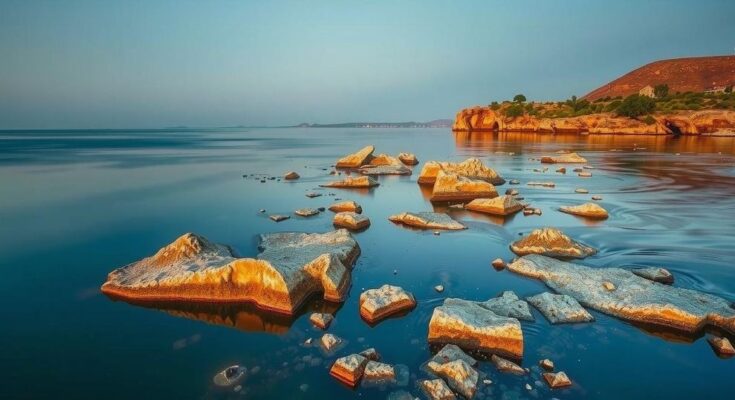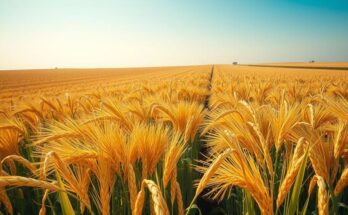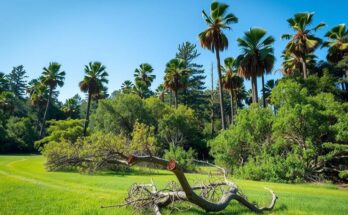Lake Kariba is facing dangerously low water levels due to severe drought, threatening electricity supplies for Zambia and Zimbabwe, with power cuts reaching 21 hours in Zambia and 17 hours in Zimbabwe. The situation is exacerbated by prolonged dry spells linked to El Niño. Only one turbine is operational on Zambia’s side, highlighting the urgent need for diverse energy sources.
A severe drought is causing Lake Kariba, the largest artificial lake in the world, to reach perilously low levels, endangering the functionality of the dam that supplies electricity to much of Zambia and Zimbabwe. The ongoing dry periods, further intensified by the El Niño phenomenon, have resulted in significant power shortages, leading to power cuts of up to 21 hours per day in Zambia and 17 hours in Zimbabwe. The diminishing water levels have forced the hydroelectric power stations at the dam to severely ration their output, with only one of the six turbines operational in Zambia. This energy crisis underscores the pressing necessity for both nations to diversify their energy sources, prompting them to expedite the development of coal and solar energy projects. Although the forthcoming rainy season in Zambia is expected to be normal, officials express hope for early rainfall to mitigate the ongoing crisis, as economic forecasts for both countries have been revised downwards due to these challenges.
Lake Kariba, located on the border between Zambia and Zimbabwe, is a crucial resource for both countries, primarily providing hydroelectric power. The region has been experiencing prolonged droughts, with climate conditions further worsened by the El Niño effect, which has historically led to unpredictable weather patterns. As a result, the low water levels in the lake present a serious threat to power supply, negatively impacting households and industries reliant on electricity. The economic implications are particularly grave, as both nations are already facing economic difficulties.
In conclusion, the severe drought affecting Lake Kariba poses significant threats to the electricity supply of Zambia and Zimbabwe, leading to extended power cuts that adversely affect economic activities and daily lives. The situation emphasizes the urgent need for the two countries to explore diverse energy solutions to ensure greater resilience against climatic challenges. While hopes remain for early rains and a normal rainy season, strategic plans for alternative energy sources are vital for mitigating future crises.
Original Source: www.africa.com




